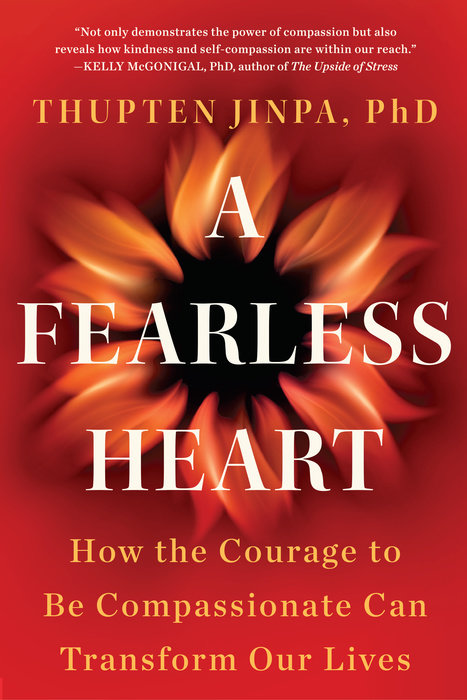Be kind, show understanding, do good—but, some scientists say, don’t try to feel others’ pain.
YOU MIGHT ALSO LIKE
CLEAR ALL
BY TOPIC
BY TYPE
FILTER

TOPIC
- Empathy (53)
- Anxiety (33)
- Neuroscience (31)
- Honoring Emotion (29)
- Depression (28)
- Self-Care (23)
- Building Character (21)
- Self-Compassion (20)
- Kindness (19)
- Stress Management (19)
- Mindfulness (18)
- Communication Skills (16)
- Parenting (16)
- Relationship Challenges (16)
- BIPOC Well-Being (15)
- Emotional Intelligence (EQ) (15)
- Resilience (15)
- Buddhism (14)
- Habit Formation (13)
- Trauma Healing (13)
- Well-Being (13)
- Athlete Well-Being (12)
- Child’s Emotional Growth (12)
- Happiness (12)
- Meditation (12)
- Mindfulness Practices (12)
- Psychology (12)
- Stress (12)
- Vulnerability (12)
- Anger (11)
- Awareness (11)
- Brain Health (11)
- Community Healing (11)
- Fear (11)
- Fellowship and Community (11)
- Search for Purpose (11)
- Self-Discovery (11)
- Self-Esteem (11)
- Activism/Service (10)
- Black Well-Being (10)
- Compassion Meditation (10)
- Self-Healing (10)
- Self-Reflection Practices (10)
- Shame (10)
- Courage (9)
- Entrepreneurship (9)
- Inner Peace (9)
- Mind-Body Connection (9)
- Positive Thinking (9)
- PTSD (9)
- Self-Acceptance (9)
- Self-Limiting Beliefs (9)
- Suffering (9)
- Cancer (8)
- Goal Setting (8)
- Gratitude (8)
- Life Challenges (8)
- Mental Health Challenges (8)
- Physical Health (8)
- Self-Worth (8)
- Social Responsibility (8)
- Suicide (8)
- Transformation (8)
- Addiction (7)
- Children’s Well-Being (7)
- Forgiveness (7)
- Generosity (7)
- Grief (7)
- Leadership (7)
- Lovingkindness (7)
- Negative Self-Talk (7)
- Neuroplasticity (7)
- Self-Development (7)
- Women’s Well-Being (7)
- Work Relationships (7)
- Anger Management (6)
- Chronic Anxiety (6)
- Criticism and Rejection (6)
- Finding Meaning (6)
- Habits of Mind (6)
- Human Potential (6)
- Inner Life (6)
- Intention (6)
- Joy (6)
- Living as an Empath (6)
- Love (6)
- Motivation (6)
- Self-Realization (6)
- Setting Limits and Boundaries (6)
- Tibetan Buddhism (6)
- ADD/ADHD (5)
- Authenticity (5)
- Belonging (5)
- Breathwork (5)
- Confidence (5)
- Empowerment (5)
- Enlightenment (5)
- Highly Sensitive People (5)
- Moral Philosophy (5)
- Peak Performance (5)
- Positive Self-Talk (5)
- Racial Healing (5)
- Self-Mastery (5)
- Social Justice (5)
- Spiritual Growth (5)
- Trauma (5)
- Values (5)
- Adaptability (4)
- Addiction Recovery (4)
- Asking for Help (4)
- Cognitive Behavioral Therapy (4)
- Connection with Nature (4)
- Dysfunctional Childhood (4)
- Eating Disorders (4)
- Endurance (4)
- Imagination and Creativity (4)
- Integrity (4)
- Interdependence (4)
- Memoir (4)
- Neurodiversity (4)
- Offering Support to Others (4)
- Perception (4)
- Performance Anxiety (4)
- Presence (4)
- Self-Actualization (4)
- Self-Love (4)
- Self-Pressure (4)
- Speaking Your Truth (4)
- Spiritual Practices (4)
- Trust (4)
- Veteran Well-Being (4)
- Body Image (3)
- Child’s ADD/ADHD (3)
- Chronic Pain (3)
- Clinical Depression (3)
- Consciousness (3)
- Cross-Cultural Dynamics (3)
- Curiosity (3)
- Death and Dying (3)
- Dharma (3)
- Diet and Nutrition (3)
- Facing Own Death (3)
- Female Empowerment (3)
- Guilt (3)
- Healthy Eating (3)
- Humility (3)
- Identity (3)
- Journaling (3)
- Karma (3)
- Letting Go (3)
- Loneliness (3)
- Military to Civilian Re-entry (3)
- Mindfulness Meditation (3)
- Neuropsychology (3)
- Oneness (3)
- Patience (3)
- Positive Psychology (3)
- Racial Justice (3)
- Romantic Relationships (3)
- Shadow (3)
- Social Anxiety (3)
- Spiritual Development (3)
- Work Challenges (3)
- Young Adult Well-Being (3)
- Acceptance (2)
- Affirmations (2)
- Alcohol Addiction (2)
- Attachment Theory (2)
- Autoimmune Disease (2)
- Biofeedback (2)
- Body Positivity (2)
- Bullying (2)
- Child’s Anxiety (2)
- Child’s Trauma (2)
- Connection (2)
- Creative Well-Being (2)
- Decision Making (2)
- Divorce and Breakup (2)
- Doubt (2)
- Environmental Justice (2)
- Epigenetics (2)
- Exercise (2)
- Failure (2)
- Family Dynamics (2)
- Focus (2)
- Forest Bathing (2)
- Freedom (2)
- Friendship (2)
- Global Challenges (2)
- Healing Approaches (2)
- Holism (2)
- Hope (2)
- Hypnosis (2)
- Inner Strengths (2)
- Integrative Medicine (2)
- Intergenerational Trauma (2)
- LGBTQIA Well-Being (2)
- Longevity (2)
- Non-Duality (2)
- OCD (2)
- Optimism (2)
- Othering (2)
- Panic Attacks (2)
- Post-Traumatic Growth (2)
- Race and Gender (2)
- Racial Discrimination (2)
- Racial Identity (2)
- Racism (2)
- Science and Spirituality (2)
- Self-Control (2)
- Situational Depression (2)
- Spiritual Awakening (2)
- Spiritual Direction (2)
- Spiritual Life (2)
- Storytelling (2)
- Toxic Relationships (2)
- Visualization (2)
- Yoga (2)
- AAPI Well-Being (1)
- Abandonment (1)
- Academic Struggles (1)
- Accepting Love (1)
- Access to Education (1)
- Acupressure (1)
- Aging (1)
- Art Therapy (1)
- Autism (1)
- Building Culture (1)
- Burnout (1)
- Cannabis/CBD (1)
- Caregiver Well-Being (1)
- Child’s Autism (1)
- Child’s Challenging Behavior (1)
- Child’s Social Media Addiction (1)
- Christian Mysticism (1)
- Christianity (1)
- Chronic Health Conditions (1)
- Clairvoyance and Precognition (1)
- Codependency (1)
- Cognitive Psychology (1)
- Collective Trauma (1)
- Compassion Fatigue (1)
- Competition (1)
- Conflict Resolution (1)
- Conscience (1)
- Dark Night of the Soul (1)
- Despair (1)
- Digital Life (1)
- Disconnection (1)
- Domestic Abuse (1)
- Ecospirituality (1)
- Energy Healing (1)
- Faith (1)
- Faith and Identity (1)
- Faith Healing (1)
- Feminism (1)
- Gender Challenges (1)
- Genetics (1)
- God (1)
- Goddess (1)
- Growth Mindset (1)
- Guided Meditation (1)
- Handling a Loved One’s Illness (1)
- Heartmath (1)
- Higher Calling (1)
- Inner Child (1)
- Inspiration (1)
- Intimacy (1)
- Islam (1)
- Islamophobia (1)
- Jealousy/Envy (1)
- Latinx Well-Being (1)
- LGBTQIA Children (1)
- Living with Illness (1)
- Manifestation (1)
- Marriage (1)
- Masculine/Feminine Dynamics (1)
- Memory (1)
- Mentoring (1)
- Narcissism (1)
- Native American Beliefs (1)
- Nutritional Medicine (1)
- Performance Pressure (1)
- Personality Disorders (1)
- Poverty/Economic Inequality (1)
- Prayer (1)
- Pregnancy and Childbirth (1)
- Psychoanalysis (1)
- Psychology and Spirituality (1)
- Regret (1)
- Rest (1)
- Sacred Feminine (1)
- Self-Expression (1)
- Self-Reckoning (1)
- Self-Reliance (1)
- Sex (1)
- Sexual Assault or Abuse (1)
- Sexual Health (1)
- Sexuality (1)
- Sleep (1)
- Social Media Addiction (1)
- Social Psychology (1)
- Somatic Practices (1)
- Soul Mission (1)
- Spiritual Quest (1)
- Spirituality and Health (1)
- Sufism (1)
- The Divine (1)
- Transpersonal Psychology (1)
- Vitamin Supplementation (1)
- Willpower (1)
- Women’s Rights (1)
- Work-Life Balance (1)
- Youth Activism (1)
- Zen Buddhism (1)
FILTER

TEACHER
- Dacher Keltner (5)
- James Doty (5)
- Lisa Feldman Barrett (5)
- Martin Luther King Jr. (5)
- Pema Chödrön (5)
- Thubten Chodron (5)
- Daniel Goleman (4)
- Karla McLaren (4)
- Paul Gilbert (4)
- Gabor Maté (3)
- Joan Halifax (3)
- Marc Ian Barasch (3)
- Andrew Solomon (2)
- Brené Brown (2)
- Daniel Amen (2)
- Daniel J. Siegel (2)
- Gaylon Ferguson (2)
- John Sarno (2)
- Lodro Rinzler (2)
- Matthieu Ricard (2)
- Rick Hanson (2)
- Alain de Botton (1)
- Amishi Jha (1)
- Andrew Weil (1)
- Angela Duckworth (1)
- Bessel van der Kolk (1)
- Biet Simkin (1)
- BJ Miller (1)
- Blaise Aguirre (1)
- Camille Helminski (1)
- Chip Conley (1)
- Chögyam Trungpa (1)
- Connie Zweig (1)
- Cyndi Dale (1)
- Cynthia Bourgeault (1)
- Dorothy Day (1)
- Eckhart Tolle (1)
- Elaine Aron (1)
- Emiliana Simon-Thomas (1)
- Gary Zukav (1)
- Gordon Neufeld (1)
- Harriet Lerner (1)
- Hyla Cass (1)
- Iskra Lawrence (1)
- J. Krishnamurti (1)
- James Hillman (1)
- Jan Willis (1)
- Jana Long (1)
- Jay Shetty (1)
- John Bradshaw (1)
- Joseph M. Marshall III (1)
- Judith Blackstone (1)
- Judith Orloff (1)
- Karen Armstrong (1)
- Krista Tippett (1)
- Kristin Neff (1)
- Lama Surya Das (1)
- Leah Guy (1)
- Lindo Bacon (1)
- Lise Van Susteren (1)
- Lori Gottlieb (1)
- Lynne McTaggart (1)
- Martin Seligman (1)
- Matthew Fox (1)
- Michael Pollan (1)
- Michele Borba (1)
- Mihály Csíkszentmihályi (1)
- Nicole LePera (1)
- Norman Fischer (1)
- Ondrea Levine (1)
- Paramahansa Yogananda (1)
- Piero Ferrucci (1)
- Poppy Jamie (1)
- Ralph De La Rosa (1)
- Rebecca Solnit (1)
- Robert Sapolsky (1)
- Roxanne Dault (1)
- Ruby Wax (1)
- Sharon Salzberg (1)
- Stephanie Y. Evans (1)
- Stephen Levine (1)
- Sylvia Boorstein (1)
- Tara Brach (1)
- Tony Gaskins Jr. (1)
- V (1)
- Valarie Kaur (1)
- William Bloom (1)
- Yongey Mingyur Rinpoche (1)










